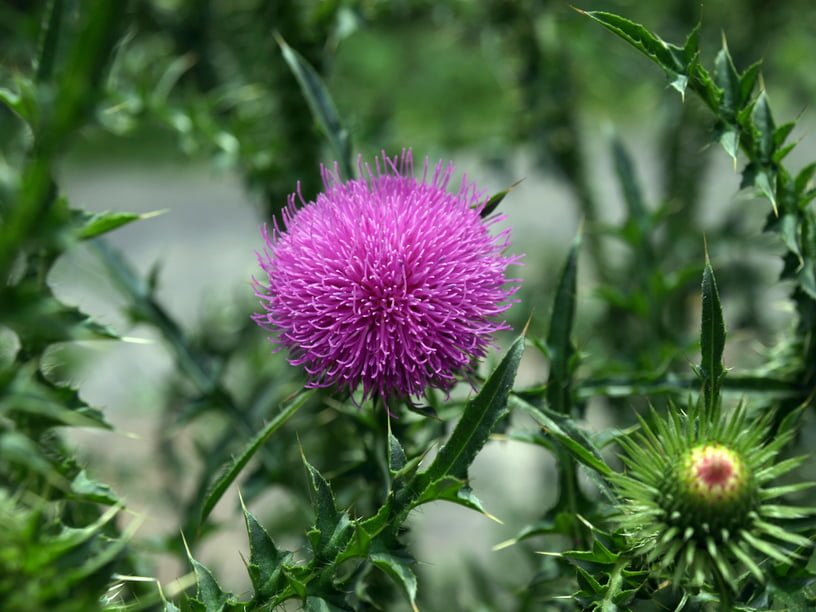
Invasive plant species have become a matter of great concern all over Utah. As gardeners, you may expect the plants sold at local garden centers to be beneficial for the environment and for your gardens, and for the most part, they are. But did you know that a few of the most commonly sold plants are also some of the most invasive? Unfortunately, in our global economy, it’s easy for invasive species to enter our nurseries and garden supply centers. The following list is by no means complete, but beware of these invasive species next time you’re in the market for new plants!
Don’t Get Wrapped Up in These Clinging Vines
Ivy-covered walls can be nostalgic, but don’t be fooled. English ivy is an extremely invasive plant. A vigorous vine, it adversely impacts forested areas. By climbing higher in search of increased light, it can smother, weaken and eventually kill large trees. Its roots will also work their way into brick, mortar or even concrete. Another vine that you should definitely avoid is wisteria sinensis (Chinese wisteria). Brought from China to Europe and then North America in the 1800s, it has become quite a popular flowering vine for the home garden, but it has been known to strangle trees and displace native species.
Steer Clear of These Fast-Spreading Shrubs
The bright yellow flowers of scotch broom may be beautiful, but it is classified as a noxious weed in many states. It is known to smother young tree seedlings, effectively ruining reforestation efforts. Another plant to watch out for is bamboo, one of the most invasive plants in the world. Yes, it can make an exotic screen, but its rapid growth also makes it a nightmare to control. The underground roots may travel 20 feet or more from the original clump, with new shoots growing up to 10 inches per day.
Find an Alternative to These Invasive Trees
The Russian olive is ranked as an invasive species by the U.S. Department of Agriculture. It crowds out other native trees such as willows, cottonwoods and birches, particularly along streams and waterways. It’s extremely difficult to kill without powerful herbicides. The tree known as the princess or empress tree has a dark side as well. These flowering trees are highly invasive, even though they are often advertised as “amazing, fast-growing shade trees.” The truth is that they are dangerous to our native ecosystems. The fast-growing princess tree can produce millions of seeds each year and easily take over fragile riparian areas.
In the Salt Lake area, Millcreek Gardens offers a wide variety of roses, trees, shrubs and perennials to fill your garden with beneficial plantings. Stop by and talk with their experienced staff for suggestions and advice that will help you select the right plants and avoid invasive species in your garden.


